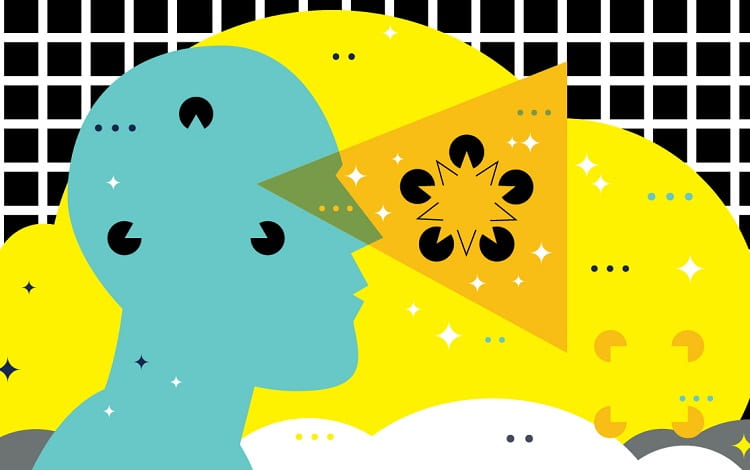When teaching about cognitive illusions, Henry “Roddy” Roediger, the James S. McDonnell Distinguished University Professor of Psychological & Brain Sciences in Arts & Sciences, often begins by asking students to read the following sentence while counting the number of times the letter F appears.
Try it yourself:
Finished files are the result of years of scientific study combined with the experience of many years.
How many times did you see an F?
If you answered three, you’re in good company. More than 60% of respondents spot the letter F in the words “finished,” “files” and “scientific.” The correct answer, however, is six. Most people’s brains skip the letter F in the word “of.” In a separate exercise, students who see a list of 15 words including “bed,” “yawn,” “dream” and “slumber”will reliably remember viewing the related (but absent) word “sleep.”
“We’re inference machines,” says Roediger, constantly taking mental shortcuts as we navigate the world. In most cases, this tendency helps us quickly make decisions and solve problems, but it also creates some uncomfortable realities about the fallibilities of perception and memory.
Humans see things that are not there. We remember events that never happened. And even if everyone sees the same thing, we may all be wrong.

In the seminar “Selected Topics in Learning & Memory: Cognitive Illusions,” Roediger walks a small group of advanced students through each of these phenomena. In addition to leaning into his expertise on the science of memory, he also assigns articles covering the latest research on other cognitive illusions — including studies he hasn’t yet read — and asks students to present on the material. Learning together is a powerful teaching tool, Roediger believes.
Tricks in visual perception can seem like little more than a fun group activity. Viewers’ reactions range from incredulity to delight when viewing the classic Ebbinghaus illusion, for example, in which it seems impossible that two spheres of equal size are truly the same. In Roediger’s course, students learn about the more serious consequences of such cognitive errors.
